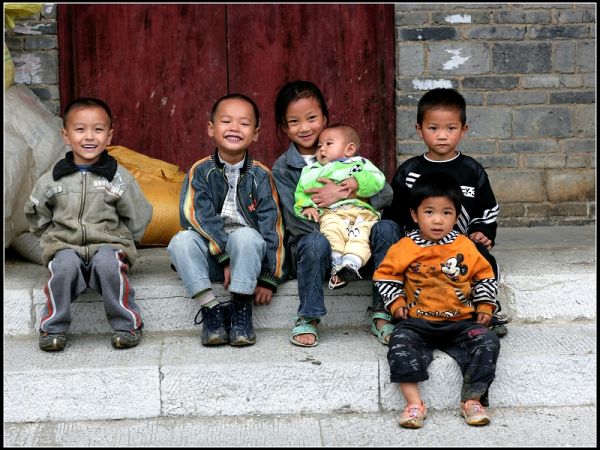


By Liu Jinsong (刘金松)
June 1, 2013
Economic Observer Online
Translated by Laura Lin
Original article: [Chinese]
Recent news about a school principal spending the night with primary school girls in hotels in south China’s Hainan Province have shocked the public.
The primary school principal has been sacked from his job and is being prosecuted for rape. Meanwhile, at least another eight cases of sexual assault on schoolgirls have been reported in the past month or so.
Aside from these cases, which have been covered by the media, nobody really knows the extent of the harm done to the massive number of “left-behind children” in China – the children whose parents are migrant workers who have gone to the cities to work in the country’s factories.
According to a study by the Anhui Medical University, the incidence of unintentional injuries among left-behind children living in rural areas is as high as 47 percent. This is 13 percent higher than for children who live with their parents.
Added to the injuries, left-behind children also suffer from lack of emotional support, which is more likely to be overlooked. When their parents leave to find work elsewhere, they are mostly left in the care of their grandparents, relatives or family friends. Sometimes they are even left unsupervised. Unlike other children, they don’t have their parents to care for them, and much too often, their grandparents don’t have the energy or capability to look after them; not to mention giving them emotional support.
The absence of such support and care seriously influences the healthy psychological development of these children. Currently, as many as 57 percent of China's left-behind children suffer from psychological problems. They also account for 70 percent of China's juvenile delinquency cases.
An even more pressing issue is the fact that the number of left-behind children is still growing. According to the latest statistics, they now number more than 61 million, accounting for 22 percent of China's children. This is three million more than five years ago. Giving them a healthy upbringing isn’t just about providing this vulnerable group with the care they are entitled to and deserve -- it is also a necessary condition for the healthy development of Chinese society.
Mobilization of Society as a Whole
Apart from granting these children access to school buses and free lunches, we should also give them our solicitude. Along with helping to feed and clothe them, we should not forget that they also need comfort and support.
NGOs have been trying to help these children find the emotional support they need. One of their programs, called “On the Way to School,” invites celebrities and volunteers to read or tell stories and record them on MP3 files, which are then given to the children. This aims to give comfort to children who don’t have their parents around to read stories to them.
However, NGOs don’t have the capacity to help all 61 million of left-behind children. Truly helping them would require the mobilization of society as a whole.
Of course, if we want to see a radical improvement in these children’s living conditions, we need to make institutional changes – such as improving equality in compulsory education, social security and reforming the backward hukou household registration system.
It is because of the hukou system that there are left-behind children in the first place: The household registration system bans migrant workers from accessing public education and healthcare, so their children are forced to stay home in the rural regions. Those children who do follow their parents to the city are not allowed to enroll in local schools.
The reforms we need are arriving too slowly, so what can we do in the meantime?
We should at least adhere to the bottom line of resolutely preventing and countering the words and deeds that undermine the rights and interests of children and destroy minors' physical and mental health.
We need to develop guidelines specifically targeted so that these rural children have the most basic security, education, psychological and personal well-being guaranteed by society.
News in English via World Crunch (link)

